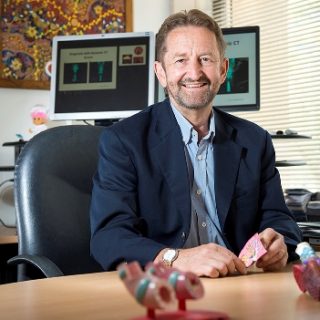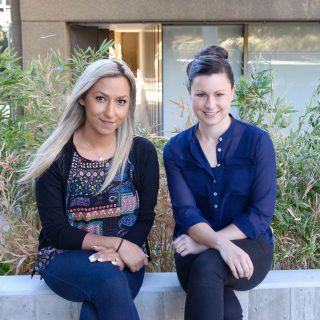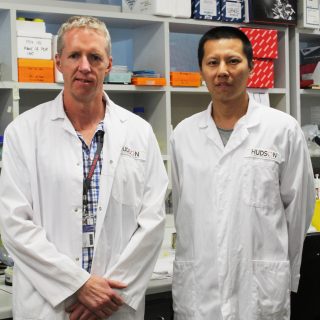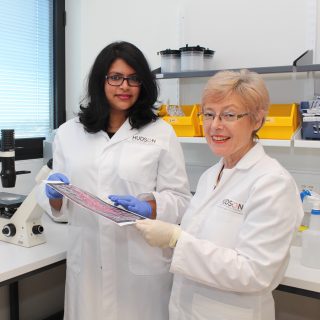News
Popular searches: Influenza, Childhood cancer, Endometriosis, Inflammation
-

Jasmine’s story
Jasmine started experiencing severe period pain as a teenager and endured five years of pain before she was diagnosed with endometriosis. Her journey continues.… Read more
-

High-dose steroids don’t prevent asthma flare-ups
High doses of glucocorticoids are not effective in preventing life-threatening asthma flare-ups, according to a landmark study published in The New England Journal of Medicine (NEJM). Glucocorticoids are anti-inflammatory medications used in many everyday prescription asthma puffers, such as turbuhalers or accuhalers. Hudson Institute research group head, Professor Phil Bardin was invited by the NEJM… Read more
-

Evelyn’s story | infiltrating bowel endometriosis
‘Invisible illness’ took years of pain and a trip to the emergency ward before diagnosis. It wasn’t until Evelyn’s debilitating symptoms started to impact her daily life that she sought help – but that was only the beginning of her journey.… Read more
-

Bianca’s story: from silent endometriosis to advocate
Bianca had the worst case of endometriosis her doctors said they had seen. Yet, she had no pelvic pain and was only diagnosed after experiencing infertility. She now wants to raise awareness so that other women don’t suffer.… Read more
-

Preventing gestational diabetes
Early career researchers Dr Stacey Ellery and Ms Aya Mousa have won the MHTP Research Week ECR speed networking event, receiving a $10,000 grant to progress their research idea.… Read more
-

Finding the right treatment for repeated implantation failure
Uncovering how abnormal immune cell populations in the womb could be linked to repeat implantation failure and early pregnancy loss is the focus of new research by Dr Ellen Menkhorst. Dr Menkhorst, a Research Scientist in the Embryo Implantation Research Group, has been awarded a $100,000 grant from the Rebecca L. Cooper Foundation to help… Read more
-

Biomarker offers hope for diagnosis of early stomach cancer
Scientists at Hudson Institute of Medical Research have identified a family of genes that could more accurately detect stomach cancer in its early stages to help improve survival rates. Stomach or gastric cancer is the third leading cause of cancer death worldwide. It is caused by the abnormal growth of cells in the lining, or… Read more
-

Bioengineering: the new approach for treating pelvic organ prolapse
Hudson Institute of Medical Research scientists are combining stem cells from the lining of a woman’s own uterus with nanobiomaterials (biodegradable materials engineered on the nanoscale) in a world-first approach to develop safer, more effective treatments for pelvic organ prolapse.… Read more
-

Newborn delayed cord clamping recommendations
Premature and full-term babies who do not require respiratory support may benefit from leaving their umbilical cord unclamped for at least 60 seconds after birth, according to the authors of a Perspective published by the Medical Journal of Australia.… Read more
-

Flicking the immune ‘switch’ to repair multiple sclerosis damage
Discovering new treatments to repair damage to nerve cells caused by Multiple Sclerosis (MS) will be the focus of research at Hudson Institute of Medical Research, thanks to funding from MS Research Australia. Dr Claire McCoy has been awarded a $25,000 MS Research Australia incubator grant to progress her research into the role of macrophages,… Read more
